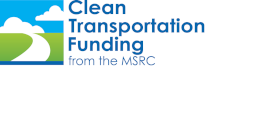The Mobile Source Air Pollution Reduction Review Committee (MSRC) has $3 million available for the Hydrogen Infrastructure Partnership Program.
News
MSRC Extends Deadline for Local Government Partnership Program to August 2
Mar 8, 2018
At their February 15, 2018 meeting, the MSRC extended the deadline for their Local Govern
MSRC Provides Championship Clean Transit to Support Dodgers WS Championship Run
Oct 24, 2017
The MSRC is excited to support the World Series bound LA Dodgers by funding the wildly successful Dodger Stadium Express for the seventh year in a row.
$21 Million Available for SoCal Cities and Counties to Invest in Clean Vehicles, Fuels and Transport
Sep 22, 2017
The Mobile Source Air Pollution Reduction Review Committee (MSRC) recently approved $21 million for cities and counties within the South Coast air district to invest in local clean vehicle, fuel and transportation projects through its new Local Go
New Solicitations and Electric Vehicle Infrastructure are Highlighted in the Latest MSRC E-News
Jul 20, 2017
The MSRC’s latest e-news is packed full of exciting stories about what is happening in the clean transportation arena and how the MSRC is contributing. The MSRC has two new solicitations available.
The MSRC Re-Elects its Chair, the Next Mayor of Cathedral City
Jun 6, 2017
For a fifth consecutive year, Cathedral City Mayor Pro-Tem Greg Pettis has been re-elected to serve as MSRC Chair for 2017-2018. Serving on the MSRC since 2009, Greg represents the Riverside County Transportation Commission on the Committee.
The City of Westminster Charges Ahead to Help EVs Grow in Popularity
Jun 1, 2017
CA Utilities Propose Major EV Infrastructure Investments
Jun 1, 2017
New MSRC Funding Opportunities Announced
Jun 1, 2017
